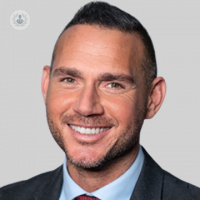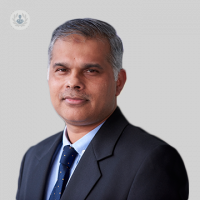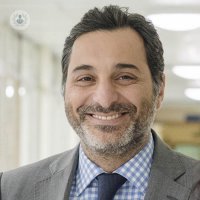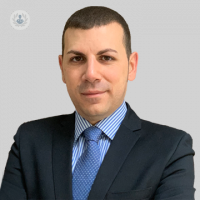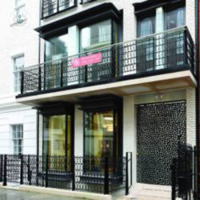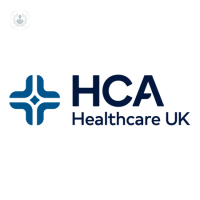What is minimally invasive cardiac surgery?
Minimally invasive cardiac surgery is a surgical technique that involves operating on the heart through the use of small incisions made on the right or left side of the chest. This technique avoids cutting through the breast bone and damaging tissues surrounding the heart, which results in less pain and quicker recovery. It is the most effective alternative to open-heart surgery.

Why is minimally invasive cardiac surgery performed?
This surgery is carried out to avoid unnecessarily damaging the structures and tissues adjacent to the heart. Sometimes, the surgeon may have a better view of some parts of your heart using minimally invasive heart surgery than in open-heart surgery. Minimally invasive procedures may include:
- Aortic valve replacement
- Coronary artery bypass surgery
- Atrioventricular septal defect surgery
- Atrial septal defect and patent foramen ovale closure
- Mitral valve repair and replacement
- Saphenous vein harvest for coronary artery bypass surgery
- Tricuspid valve repair and replacement
What happens during the minimally invasive heart surgery procedure?
During the minimally invasive heart surgery procedure, the surgeon makes small incisions in the right or left part of the chest. Instead of cutting through the sternum, the surgeon accesses the heart and operates through the ribs.
The procedure can be done in three ways:
- Robot-assisted heart surgery
- Thoracoscopic surgery
- Making a small incision in the chest
For some of the procedures, may be linked up to a heart-lung bypass machine to keep blood moving through your body during the operation.
How should I prepare before minimally invasive heart surgery?
Before the operation, your doctor and treatment team will explain the procedure to you, what you can expect afterward and the clear up any doubts or concerns you have.
You may have to shave the body area where the incision will be made.
Before going to the hospital, you should arrange with a family member or friend to pick you up after as you won’t be able to drive. Your doctor will also give you instructions to follow during your recovery.
What's involved in minimally invasive heart surgery aftercare?
Normally, you will spend around 24 hours or more in the intensive care unit (ICU). After staying in the ICU for one day, you will then be transferred to a regular hospital room where you will stay for several days. The amount of time you are in hospital after the operation depends on your conditions and which surgery you’ve just undergone.
During your stay at the hospital, the medical team will monitor and manage your blood pressure, heart rate, and breathing. Over time, you will start walking regularly to increase your activities and you’ll likely be given breathing exercises to do.
When you go home, it’s important to look out for signs of infections in your incisions and take any prescribed medications properly. Your doctor will give you advice on the signs of infections and some instructions to follow to make a full and speedy recovery.
11-13-2012 08-11-2023Minimally invasive cardiac surgery
Mr Gianluca Lucchese - Cardiothoracic surgery
Created on: 11-13-2012
Updated on: 08-11-2023
Edited by: Karolyn Judge
What is minimally invasive cardiac surgery?
Minimally invasive cardiac surgery is a surgical technique that involves operating on the heart through the use of small incisions made on the right or left side of the chest. This technique avoids cutting through the breast bone and damaging tissues surrounding the heart, which results in less pain and quicker recovery. It is the most effective alternative to open-heart surgery.

Why is minimally invasive cardiac surgery performed?
This surgery is carried out to avoid unnecessarily damaging the structures and tissues adjacent to the heart. Sometimes, the surgeon may have a better view of some parts of your heart using minimally invasive heart surgery than in open-heart surgery. Minimally invasive procedures may include:
- Aortic valve replacement
- Coronary artery bypass surgery
- Atrioventricular septal defect surgery
- Atrial septal defect and patent foramen ovale closure
- Mitral valve repair and replacement
- Saphenous vein harvest for coronary artery bypass surgery
- Tricuspid valve repair and replacement
What happens during the minimally invasive heart surgery procedure?
During the minimally invasive heart surgery procedure, the surgeon makes small incisions in the right or left part of the chest. Instead of cutting through the sternum, the surgeon accesses the heart and operates through the ribs.
The procedure can be done in three ways:
- Robot-assisted heart surgery
- Thoracoscopic surgery
- Making a small incision in the chest
For some of the procedures, may be linked up to a heart-lung bypass machine to keep blood moving through your body during the operation.
How should I prepare before minimally invasive heart surgery?
Before the operation, your doctor and treatment team will explain the procedure to you, what you can expect afterward and the clear up any doubts or concerns you have.
You may have to shave the body area where the incision will be made.
Before going to the hospital, you should arrange with a family member or friend to pick you up after as you won’t be able to drive. Your doctor will also give you instructions to follow during your recovery.
What's involved in minimally invasive heart surgery aftercare?
Normally, you will spend around 24 hours or more in the intensive care unit (ICU). After staying in the ICU for one day, you will then be transferred to a regular hospital room where you will stay for several days. The amount of time you are in hospital after the operation depends on your conditions and which surgery you’ve just undergone.
During your stay at the hospital, the medical team will monitor and manage your blood pressure, heart rate, and breathing. Over time, you will start walking regularly to increase your activities and you’ll likely be given breathing exercises to do.
When you go home, it’s important to look out for signs of infections in your incisions and take any prescribed medications properly. Your doctor will give you advice on the signs of infections and some instructions to follow to make a full and speedy recovery.


Heart health: TAVI vs. AVR – Part 2
By Mr Neil Roberts
2024-12-26
When aortic stenosis threatens the heart, two treatment options are TAVI and AVR. In the second part of this article, top cardiothoracic surgeon Mr Neil Roberts lays out the advantages and disadvantages of these procedures and explains when each would be recommended. See more
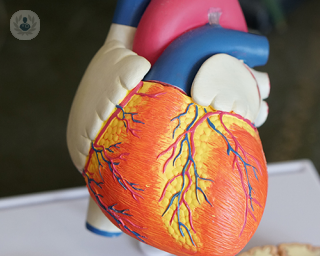

The road to better outcomes: keyhole heart surgery
By Mr Inderpaul Birdi
2024-12-23
Coronary bypass surgery has traditionally been a major procedure that involves breaking the breastbone to open the chest and reach the heart. However, minimally invasive approaches can now lower the risks and reduce the recovery time of these operations. Mr Inderpaul Birdi is here to explain the minimally invasive direct coronary artery bypass (MIDCAB). See more
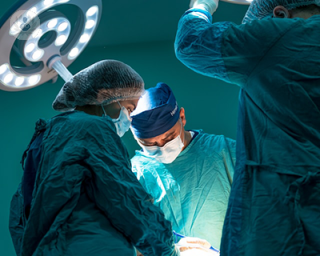

How does robotic-assisted surgery improve thoracic procedures?
By Mr Ahmed Oliemy
2024-12-11
Thoracic procedures, which focus on the organs and structures inside the chest, such as the lungs and oesophagus, are traditionally complex. However, the advent of robotic-assisted surgery is transforming the way these surgeries are performed, offering patients numerous advantages. Let’s explore how this cutting-edge technology is making thoracic surgeries more precise and patient-friendly. See more
Experts in Minimally invasive cardiac surgery
-
Mr Shahzad Raja
Cardiothoracic surgeryExpert in:
- Aortic root surgery
- TAVI (transcatheter aortic valve implantation)
- Aortic valve replacement
- Coronary surgery
- Heart valve surgery
- Minimally invasive cardiac surgery
-
Mr Ulrich Rosendahl
Cardiothoracic surgeryExpert in:
- Transcatheter aortic valve implantation (TAVR)
- Mitral regurgitation
- Minimally invasive cardiac surgery
- Heart valve surgery
- Cardiovascular disease
- Aortic valve replacement
-
Mr Toufan Bahrami
Cardiothoracic surgeryExpert in:
- Minimally invasive cardiac surgery
- Mitral valve repair (minimally invasive)
- Aortic valve replacement (minimally invasive)
- Beating heart coronary heart bypass surgery (minimally invasive)
- Redo cardiac surgery
- Endoscopic coronary artery bypass surgery
-
Mr Gianluca Lucchese
Cardiothoracic surgeryExpert in:
- Minimally invasive cardiac surgery
- Valvular repair surgery
- Aortic valve replacement
- TAVI (transcatheter aortic valve implantation)
- Atrial Fibrillation
- Congenital heart disease
-
Mr Alberto Albanese
Cardiothoracic surgeryExpert in:
- Coronary bypass surgery
- Beating heart coronary heart bypass surgery (minimally invasive)
- Aortic valve replacement (minimally invasive)
- Mitral valve repair (minimally invasive)
- Aortic root surgery
- Minimally invasive cardiac surgery
- See all

77 Wimpole Street
77 Wimpole Street
77 Wimpole Street, London. W1G 9RU
No existe teléfono en el centro.
By using the telephone number provided by TOP DOCTORS, you automatically agree to let us use your phone number for statistical and commercial purposes. For further information, read our Privacy Policy
Top Doctors

Cleveland Clinic London Hospital
Cleveland Clinic London Hospital
33 Grosvenor Place
No existe teléfono en el centro.
By using the telephone number provided by TOP DOCTORS, you automatically agree to let us use your phone number for statistical and commercial purposes. For further information, read our Privacy Policy
Top Doctors

The Harley Street Clinic - part of HCA Healthcare
The Harley Street Clinic - part of HCA Healthcare
35 Weymouth Street, London. W1G 8BJ
No existe teléfono en el centro.
By using the telephone number provided by TOP DOCTORS, you automatically agree to let us use your phone number for statistical and commercial purposes. For further information, read our Privacy Policy
Top Doctors
-
77 Wimpole Street
77 Wimpole Street, London. W1G 9RU, W1G Marylebone LondonExpert in:
- Homecare
- Cardiology
- Preventive cardiology
- Cardiovascular disease
- Respiratory diseases
- Hypertension
-
Cleveland Clinic London Hospital
33 Grosvenor Place, Central LondonExpert in:
- Cardiology
- Colorectal surgery
- Minimal access surgery (keyhole surgery)
- Gallbladder surgery
- Diagnostic Imaging
- Ultrasound
-
The Harley Street Clinic - part of HCA Healthcare
35 Weymouth Street, London. W1G 8BJ, Central LondonExpert in:
- Cancer
- Head and neck cancer
- Cardiology
- Intensive care
- Diagnostic Imaging
- Women’s health
- See all
- Most viewed diseases, medical tests, and treatments
- Endovenous laser treatment (EVLA)
- Minimal access surgery (keyhole surgery)
- Aortic aneurysms
- Botulinum toxin (Botox™)
- Medicolegal
- Robotic surgery
- MRI
- Transient ischaemic attack (TIA)
- Interventional cardiology
- Lung cancer
